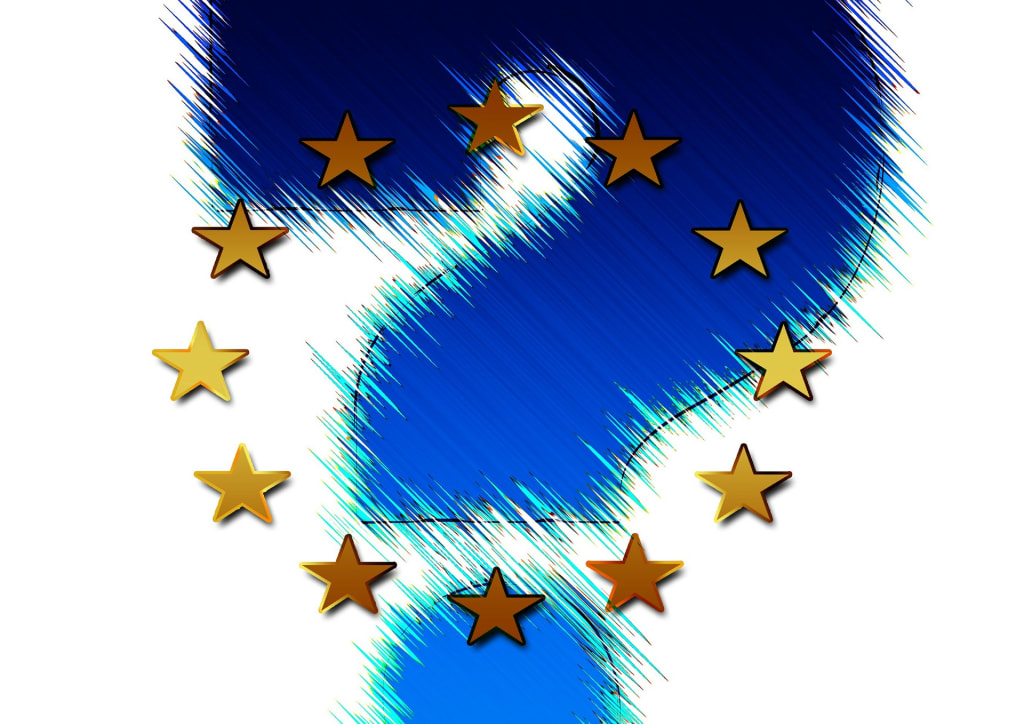Institutional Balance vs. Separation of Powers
Is the central concern of the European Union ‘institutional balance’ between the different organs, rather than separation of powers?

Introduction
The concept of institutional balance—much used in EU legal publications appears to be a concept that is as elusive as the Unicorn. It is further clouded by parallels often drawn between it and the principle of separation of powers.
In the UK separation of powers mainly refers to the independence of the judiciary in-as-much as the legislative and executive branches are closely aligned. Transfer of this doctrine to the EU is difficult but should not be construed as unattainable. Arguably, the separation of powers is not based upon the EU’s institutions—taken to mean the separation of powers of national governments found within UK and EU institutions. Instead, it deals with the differences between the federalist approach to European unity and the immediate needs of the state approach of the functionalists—instead of curtailing the conflict between the executive, legislative and judiciary branches.
The first question is: are the institutions of the EU democratic? To answer that, we must consider whether its institutions are comprised of elected persons or appointees. There are seven institutions, however, only the European Parliament members are elected—each of its 736 members stands for election every 5 years with each citizen in every state casting his or her ballot. The obvious argument is that the EU Parliament is truly democratically elected—this is perhaps an oversimplification since the EU’s mission is to protect not only citizens’ rights but member states whose priorities may diverge from those of its citizens or other states which deserve recognition as well.
Next, the legislative process itself should be examined to determine if it is democratic. However, since the EU Parliament has the legislative power and is directly elected the legislative process may be said to be democratic —even though the Commission’s role providing the stimulus for law-making can be criticised as not representative of the people because its members are not elected.
Finally, we must consider the democratic nature of the EU broadly. The balance of power and opportunity for public incentive—fundamental for a government "for the people" would not be possible if all state power resided in the hands of a few people or in any one institution. Montesquieu argued—if government is to be for the common good, there must necessarily be a separation of powers. In spite of this some commenters like Steiner, argue that the EU functions within a system of institutional balance—and indeed the European Court of Justice rejected the idea that the EU operates in accordance with the doctrine of separation of powers in the 1982 case of France, Italy and the UK v. The Commission Document 61980CJ0188—accordingly, we must ask whether or not the relationship between EU institutions is one of separation of powers—a combination of separation and balance—or if it lacks any sort of balance at all—in our determination of the structure as one that embodies democratic ideals—also, we must consider the possibility that it does not.
For effective function institutional balance must contain both "checks" and "balances" seen in EU institutions through the powers of inspection these institutions have over each other. Instead of considering a head-on system of institutional balance or separation of powers, we must entertain the possibility that both operate in tandem. Douglas-Scott contends that it is conceptually and practically difficult to separate governmental functions.
The goal of this short paper is to superficially analyse the principle of institutional balance which is arguably too vague to be a satisfactory alternative substitute for the separation of powers found in the ECJ case law.
Is institutional balance another name for separation of powers?
Majone, finds it surprising "…that there have been little analytic comparisons … to better grasp the elusive constitutional nature of the EC…"
While both are certainly interconnected—just how they relate to each other is not clear. One commenter suggests that—to the court—institutional balance is merely a substitute for the principle of separation of powers. Another contends that arrangements between EU institutions are not governed by separation but balance. Yet another avers that balance prevents the concentration of powers at the European level and therefore, may "…be considered to be an equivalent to the doctrine of separation of powers, or rather 'checks and balances' as they exist in national systems."
If the aim of separation of powers is to prevent arbitrary rule—the argument that it only applies to states—would be akin to saying arbitrary rule is only a risk within a state. The EU is a hierarchy—parts of whose powers are central—creating in of itself the risk of abuse of power and arbitrary and capricious rule.
The problem of the principle’s relevance to the EU cannot be solved by the court’s ruling that it does not exist in the EU—however, it might be an element to be considered in answering the question of whether or not the EU respects the principle.
To sum up: the aim of separation of powers is to secure individual freedom by the mechanism of division of public authority between a number of different actors—therefore, it may be said that both concepts operate at different levels.
The separation of powers is loosely defined as a politico-philosophical principle that relates to every conceivable political entity while the concept of institutional balance is a product of a specific political entity. In an exercise in comparative law different political entities may be measured by the abstract concept of separation of powers, it does not apply to institutional balance in-as-much as institutional balance flows from the treaties—it does not exist in the abstract—it is a product of EU legal order that cannot be measured using the yardstick of the independent notion of institutional balance.
Both concepts, therefore, should be maintained as distinct from one another—however, both are independently relevant to the EU. The relevance of separation of powers is in the evaluation of the legal structure and political functioning of the EU—while institutional balance is only applicable to the evaluation of the political functioning of the EU and the legal structure established in any secondary laws that result.
Conclusion
While both concepts are distinguishable—in-as-much as they operate at different levels they both are relevant to the EU. Some commenters argue the notion is not a principle—because rules delineating rules between institutions are either complex or detailed enough and the notion of balance infers stability that does not currently exist within the EU legal order—or alternatively a principle enforceable in the court—insufficient for the case for institutional balance. The court consistently has refused private parties attempting to rely on the principle—and ignored institutional balance arguments from member states and its own institutions.
The principle of institutional balance may yet realize its potential as an actionable principle if the court becomes more receptive to the institutional balance arguments of all parties—thereby dealing with them in a more structured way.
Even if this does not happen the debate concerning institutional balance may be settled—then the notion of institutional balance would not be a principle of EU law—but merely shorthand for the idea contained in Article 13(2) TEU: "Each institution shall act within the limits of the powers conferred on it in the Treaties, and in conformity with the procedures, conditions and objectives set out in them. The institutions shall practice mutual sincere cooperation."
This writer contends that either a confirmation or rejection of the principle of institutional balance’s status as a principle of EU law would be infinitely preferable to the current ambiguity.
About the Creator
Jim Gilliam
I was born in Velasco, Texas a small town on the Gulf Coast and raised in the even smaller town of Port Isabel, Texas. Like the protagonist in my first novel I ran away from home, lied about my age, and joined the Coast Guard at 14.






Comments
There are no comments for this story
Be the first to respond and start the conversation.